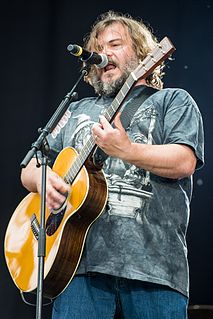A Quote by Paul Rust
At one point, I just decided that it might be more creatively rewarding to put my time into writing on stuff that I could really be proud of rather than trying to get a one-episode part on 'Modern Family' or something.
Related Quotes
I do think it's getting more and more rare in this country to raise a kid with the attitude that creativity is something valuable. The idea of trying to make the effort to produce something, to put something out into the world, rather than just taking in all the stuff the world's putting out at you.
I never intended to have a career as a journalist, writing about people who make movies. I did it as something that was really rewarding to do, given the opportunity to express myself about something I cared about, and also to learn a lot by watching filmmakers I admired. In a sense, it was my film school. After doing it for a few years, I decided that the time had come to get it together and do some work of my own. Even for a cheap movie, you need film stock and equipment and actors. Whereas to write, all you need is paper and an idea, so I felt that writing might be my stepping stone.
To me, every episode is like a song, and every season is like an album. There's that part of the day when you first get the idea and you say, "This could be really funny." And you sit down and you write it. There's just something that happens there that doesn't happen when you really give it a lot of time beforehand.
No matter how far I get into my career, even if I get hurt again, it's just a part of who I am. On the flip, I'm a warrior, I'm a soldier, I get up. As many times as I fell, I've still gotten up, and that's way more rewarding to me than any other thing that I've ever accomplished, and I'm proud of that.
For me, the part of reporting that's the most rewarding and energizing is just hearing directly from people whose voices haven't often been heard, or incorporated into mainstream media. That stuff is really, really gratifying, and so to realize that you could make a career of that part of it, that appealed to me.
We do want the freedom to move scenes from episode to episode to episode. And we do want the freedom to move writing from episode to episode to episode, because as it starts to come in and as you start to look at it as a five-hour movie just like you would in a two-hour movie, move a scene from the first 30 minutes to maybe 50 minutes in. In a streaming series, you would now be in a different episode. It's so complicated, and we're so still using the rules that were built for episodic television that we're really trying to figure it out.
It's insane to be a writer and not be a reader. When I'm writing I'm more likely to be reading four or five books at once, just in bits and pieces rather than subjecting myself to a really brilliant book and thinking, "Well what's the point of me writing anything?" I'm more likely to read a book through when I take a break from writing.
We live in a world made up more of story than stuff. We are creatures of memory more than reminders, of love more than likes. Being attentive to the needs of others might not be the point of life, but it is the work of life. It can be messy, and painful, and almost impossibly difficult. But it is not something we give. It is what we get in exchange for having to die.
When I was younger, I was always described as happy-go-lucky. Then I drank and I partied - did all that stuff that might tell you maybe there was a little bit of untruth in that [description]. Now, the surprising thing is that when I say stuff, I actually mean it. I don't have to do the work of trying to formulate my point of view. It just is. And it's surprising how much I love life. I just really have a good time.
At some point, you have to disconnect, if the obsession with playing a real person gets in the way of the movie at large. At the same time, we're all interested, as actors in trying to get as close to the real thing as we can, and whatever you can do in order to create that transformation feels fun and, for me, the furthest I can get away from myself is fun. It's all part of the costume, the accent, and all that stuff. It's about trying to get close without it being a detriment to the point of view of the story that you're trying to tell.
There's no really other way to learn writing than by writing. So accelerate that as much as you can. The more you write, the better you'll get. What also helps, though, is walking away from broken stuff. Not everything's going to work. Killing two years of your life trying to resuscitate a dying novel, I don't know. Why not just write a different one? You'll have more ideas. You can't help having ideas.




































